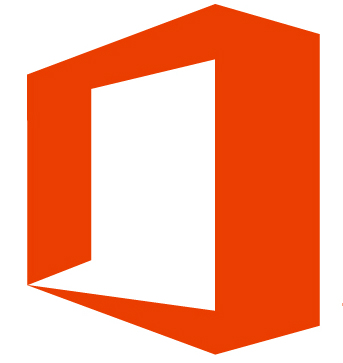
Microsoft moves your Office to the cloud
There's a reason CEO Steve Ballmer unveiled Office 2013 early this afternoon. Microsoft's productivity suite has a new face, so to speak. His presence communicates the company's commitment, particularly to businesses -- many of which are gun shy to big changes. The new version really isn't about applications after all but the cloud. Sure, the new suite is finger-licking good, however, it's what Microsoft offers beyond the device that matters more. The software giant is in process of completely reinventing Office for the cloud-connected device era.
The new Office is just that -- a new office for you to do you work. Your new cubicle is outdoors, or anywhere you want to be. In this new workplace Microsoft wants you to pay differently, too, by pushing subscriptions instead of your paying once for perpetual licenses. Ballmer and Co. prefers to collect monthly fees, just like your cable provider. Subscription computing is the Holy Grail sought by Microsoft since the 1990s and something of a pseudo-achievement a decade ago with business annuity license contracts.

Microsoft delivers Customer Preview of new Office suite
Microsoft unveiled the latest version of Office on Monday, intended to take advantage of the latest features of Windows 8 including touch, an ARM-based version for Windows RT, and two new Office applications including OneNote and Lync.
"We are taking bold steps at Microsoft", CEO Steve Ballmer said at the press conference in San Francisco. "The new, modern Office will deliver unparalleled productivity and flexibility for both consumers and business customers. It is a cloud service and will fully light-up when paired with Windows 8".

Google Apps vs Office 365: Which wins over users?
Unlike most tech industry analysts that pit Google versus Microsoft in a paper-specs war each time they opine about these cloud email platforms, I’ve got two cents to offer on the subject from a slightly different -- and perhaps more down-to-earth -- perspective. I’m an IT consultant by day who is responsible for implementing, supporting, and training on each company’s product.
It allows me to have better perspective about how end-users feel about these major cloud suites when “non techies” are at the wheel. And the things they tell me are often no-holds-barred as they rarely hold back. The bigger question most analysts fail to answer still stands: who’s winning the “hearts and minds” of those using these suites?

Microsoft gets 80,000 seat Office 365 contract with FAA, DOT
Microsoft's Office 365 cloud productivity suite gained even more momentum on Thursday, with both the Department of Transportation and Federal Aviation Administration announcing they will move some 80,000 employees to the platform.
The deal is worth some $91 million over seven years, and is provided through Microsoft partner Computer Sciences Corp. Office 365 plays a central role in the SaaS deal, which will offer DOT and FAA employees email, instant messaging, calendaring and webconferencing tools in a multi-platform environment.

Google acquires Quickoffice, massively changes the mobile productivity scene
Google issued a succinct announcement on Tuesday, stating it had acquired cross-platform mobile productivity app makers Quickoffice, and that Quickoffice will soon be integrated into the Google Apps product suite.
"When we embarked on our mission to become the world leader in office productivity, we knew we were taking on a huge challenge. We worked very hard to build Quickoffice as a user friendly, seamless and yet powerful way to view, edit, sync and share documents anywhere, anytime. It's been a very humbling experience to see this vision embraced by our users," said Allen Masarek, Co-founder and CEO of Quickoffice in a statement on Tuesday. "Now, we are ushering in a new chapter with Google. By combining the magic of Google's intuitive solutions with Quickoffice's powerful products, our shared vision for anytime, anywhere productivity can only grow."
Microsoft Not Discussing Windows 7, Office 14
Now that Vista and Office 2007 are officially out the door, Windows enthusiasts have been busy scrounging up what they can about the next versions of both products. Not much has turned up besides code-names and potential features, but a number of blog posts prompted Microsoft to say publicly that it's not saying anything.
The commotion largely began at the RSA Security conference last week, where Windows Core Operating System Division Corporate Vice President Ben Fathi told an audience that the next major release of Windows is about two to two-and-a-half years out, indicating a 2009 timeframe.
